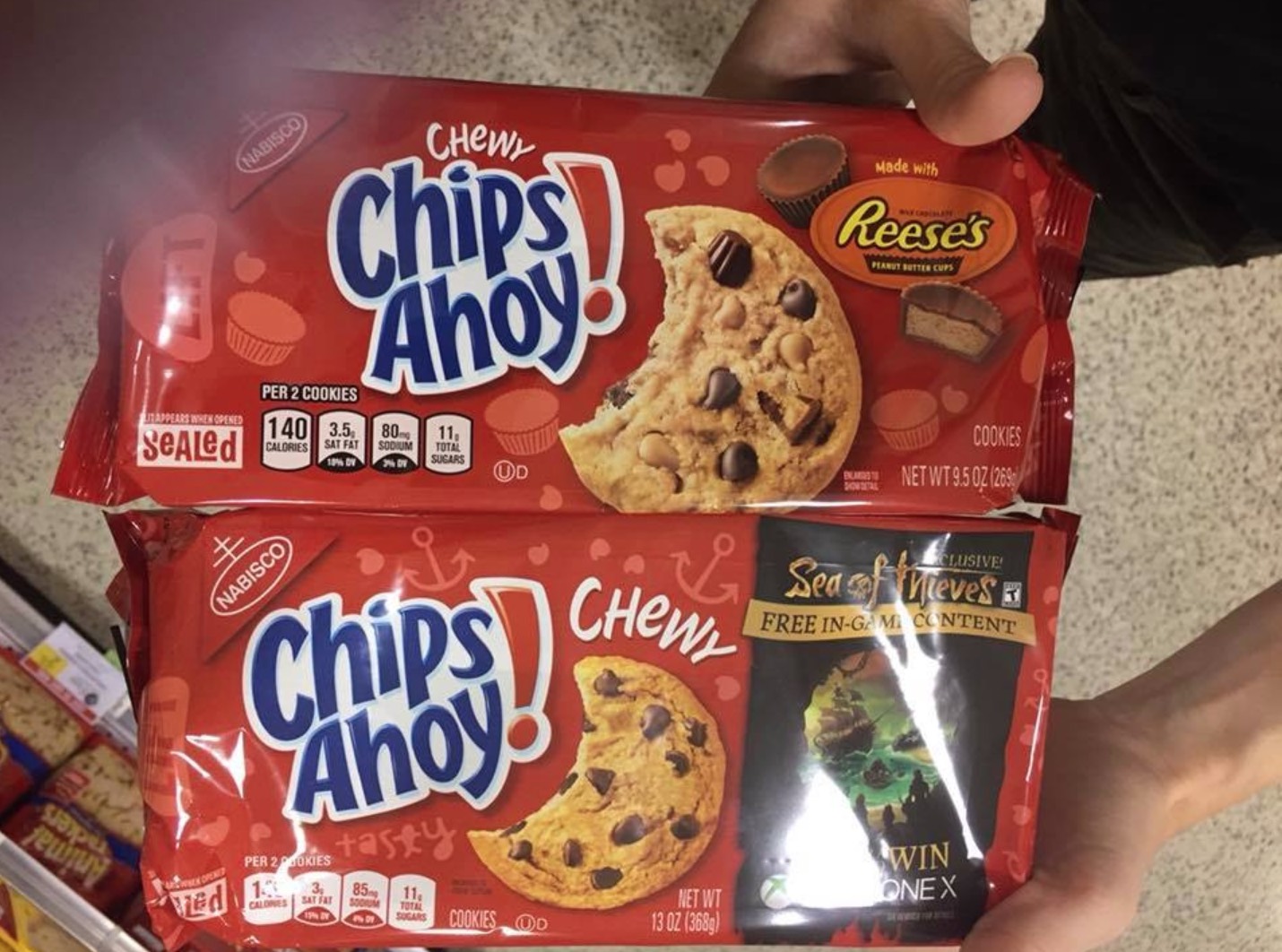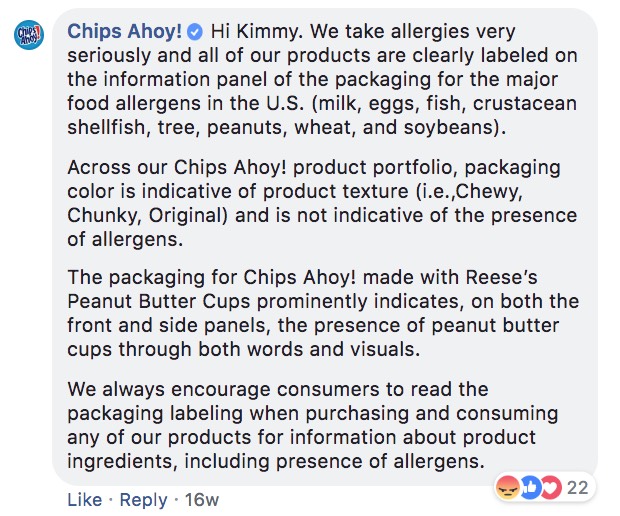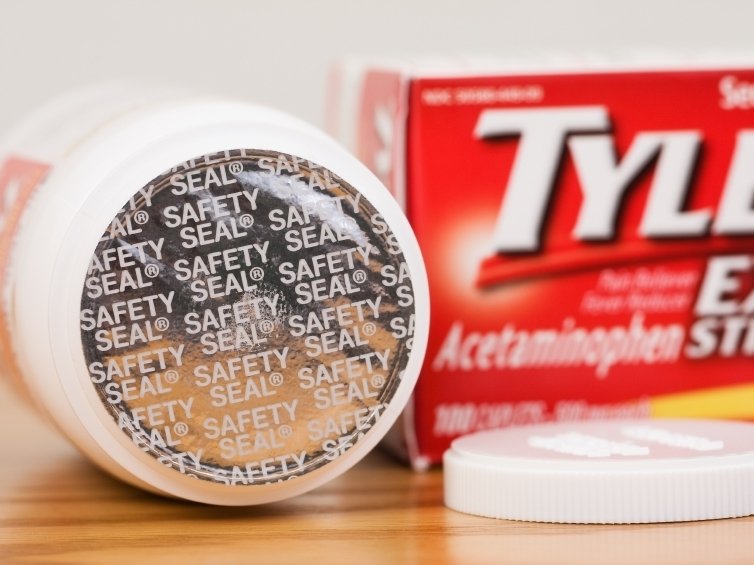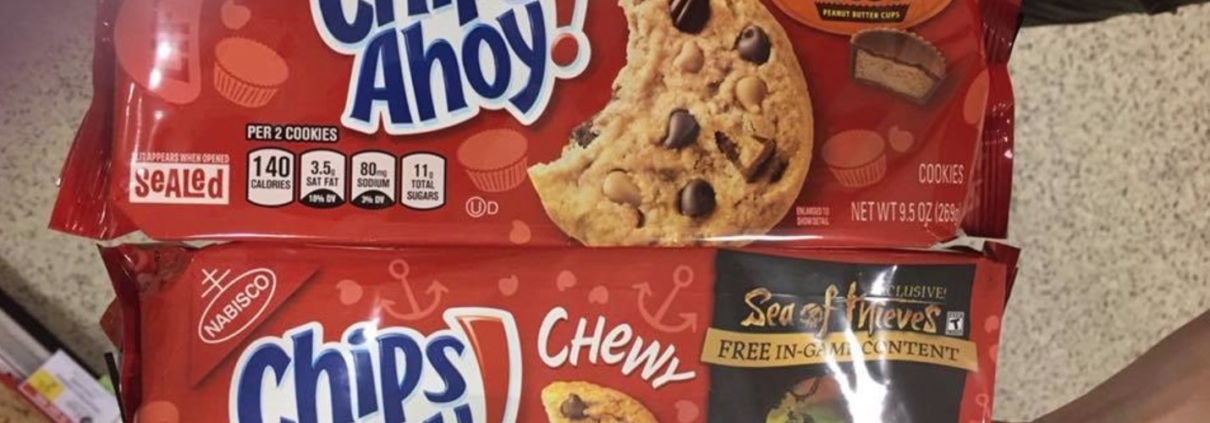Why Abiding By the Law Is Not Enough to Maintain Trust
In most cases, abiding by the law is a good thing. If a person or company is described as law-abiding that likely brings to mind other positive attributes like trustworthiness and being responsible. But in some cases, following the law is not enough to maintain a reputation of trustworthiness and responsibility, something cookie maker Chips Ahoy! learned the hard way earlier this year. A hallmark of effective leadership is the ability to observe and learn from other’s mistakes without experiencing the pain of those mistakes firsthand. Fortunately, there are valuable insights to be gained from examining Chips Ahoy!’s experience on what it takes to maintain the trust of those who matter most, when it matters most.
Mondelez-owned cookie brand Chips Ahoy! came under fire from consumers and parents earlier this year following the death of Alexi Travers Stafford, a 15-year old girl with a nut allergy who mistakenly ate a Reese’s flavored Chips Ahoy! cookie while at a friend’s house. Alexi confused the red packaging of the Reese’s flavored cookies with the red packaging of Chips Ahoy! “chewy” cookies, a product the teen’s parents had deemed safe for her to eat. The tab was likely pulled back on the package, concealing the flavor of the cookies inside. Alexi died within 90 minutes of ingesting the cookie.

Chips Ahoy!’s Reese’s flavored and “chewy” cookies; when the tab at left is pulled back, the packages are indistinguishable.
Alexi’s mother wrote a Facebook post expressing shock at the loss of her daughter and anger at Chips Ahoy! for not having clearer allergen labels saying in part, “The company has different colored packaging to indicate chunky, chewy, or regular textures but NO screaming warnings about such a fatal ingredient to many people. Especially children.” Roughly 15 million Americans suffer from food allergies; six million are under the age of 18. The post has been shared more than 80,000 times as of this writing.
Because there were no contamination issues and Chips Ahoy!’s labels meet the Food and Drug Administration’s standards, there was no need to investigate or increase regulatory scrutiny on the snack maker. The argument was made directly by some people on social media and indirectly by Chips Ahoy! in its response, that the company is not responsible for Alexi’s death and there is nothing Chips Ahoy! can or should do differently. This was not a case of cross-contamination or a labeling error. No laws were broken. No foul, right? Wrong. Isn’t the young girl’s death sufficient proof there is room for improvement, that could be the difference between life and death? It absolutely is.

Chips Ahoy! issued the same blanket response to media inquiries and comments from concerned consumers across its social media platforms.
Chips Ahoy! had the opportunity to set a powerful new standard for prioritizing its consumers’ wellbeing, much the way Johnson & Johnson did in the wake of the Tylenol tampering scare. In 1982, an unknown number of Tylenol bottles laced with cyanide made it to store shelves in the Chicago area. The tampering resulted in seven consumer deaths in one week, including a 12-year old child. In its response, Johnson & Johnson prioritized consumer safety over profits by issuing a nationwide recall of its highest-selling product, that cost the company $100 million. Ultimately, that decision solidified Johnson & Johnson’s reputation of trustworthiness and helped it recoup the money lost from the recall and then some through its customers’ continued patronage. James Burke, the CEO of Johnson & Johnson at the time, said in the press conference where he announced the nationwide recall, “While this decision is a financial burden to us, it does not begin to compare to the loss suffered by the family and friends of Diane Elzra [one of the victims]”. By putting the concerns of its customers ahead of its own, Johnson & Johnson and then-CEO James Burke became evergreen examples of how organizations and their leaders ought to respond in a crisis, regardless of fault: quickly, unselfishly, and with heart. The short-term pain Johnson & Johnson experienced was offset by the long-term gains of such a response. By comparison, Chips Ahoy! opted for defensiveness (e.g. “all of our products are clearly labeled”) and protecting its profits in the short term since maintaining the status quo, in this case the package labels, is always cheaper than changing it.
In both cases, the companies did not run afoul of the law. In both cases, innocent lives were lost including those of children. But in only one case did the company – Johnson & Johnson — take up the mantle of doing something to reduce the likelihood of such an incident happening again; Johnson & Johnson added tamper-proof seals to its medicine bottles, setting a new industry standard for safety and winning the hearts and trust of its customers in the process, solidifying an admirable reputation that has lasted decades.

Meaningful changes can be made in the face of tragedy, without accepting fault for it; the development of tamper-proof seals on medicine bottles is thanks to Johnson & Johnson’s response to the 1982 Tylenol poisoning crisis that claimed seven innocent lives.
It is natural for one’s survival instincts to kick in and resist accepting blame, especially when it is undue or misplaced, and the ramifications that go along with it. However, it is possible and strategically sound, albeit uncomfortable, for organizations to demonstrate caring while not accepting fault as Johnson & Johnson did. It was precisely by taking proactive action in accordance with its values, that is putting the wellbeing of its stakeholders ahead of all else including profits, that Johnson & Johnson avoided the kind of blame and negative attention Chips Ahoy! has faced. Chips Ahoy! says it takes allergen labeling seriously but has done nothing in the wake of Alexi Traver Stafford’s death to show it. It is worth repeating that her death is proof enough that more can and should be done.
So, what should organizations do when facing an issue in which they have not broken the law, and yet their trustworthiness, integrity, and/or competence are being called into question? Asking the below questions can help clarify the best path forward:
Is there a reasonable request for change? In every crisis, one or more stakeholder groups will implicitly expect or explicitly demand the organization to do or stop doing something. In light of consumer deaths where improved packaging could have saved lives, a request to change product packaging is perfectly reasonable. While there are different ways to determine reasonableness, one effective way to do so is to consider the crisis from the stakeholders’ perspective(s), and ask yourself what would you expect if you were in their position?
Is it a doable request? Time, labor, and money are important factors that impact how realistic it is to fulfill a request. If one or more of the above factors make it impossible to fulfill the request or it is unclear when the request will be met, the organization should explain that clearly to its stakeholders and reset their expectations to more achievable ones, or risk losing their support, patronage, and loyalty.
Would fulfilling the request be in alignment with corporate values/identity? Johnson & Johnson’s first stated value in its Credo is to act responsibly in the interests of all people who use its products. Mondelez International’s (Chips Ahoy’s! parent company) stated purpose is to “empower people to snack right” for their wellbeing. Notably, the first rule in Mondelez’s code of conduct is to make food that is safe to eat, indicating that safety is a priority for the company. Now consider the crises each company faced, where consumer deaths were the result, in part, of mediocre packaging: improving product packaging would mean upfront financial losses but would retain or regain stakeholder loyalty and customer patronage in the long run by addressing a safety vulnerability, as well as protect reputation and keep regulatory/political/legal scrutiny at bay. On the other hand, not changing product packaging would save a finite amount of money in the short term but leave consumers and the company open to safety issues and litigation, while jeopardizing an unknown amount of money in the long term, given stakeholders’ likely loss of confidence in the organization, and invite scrutiny from the public, media, and potentially regulators, class action lawyers, and politicians. Keep in mind, consumers today abandon brands with unprecedented frequency and are more influenced than ever by an organization’s values and beliefs when deciding whether or not to do business with them. Clearly, Johnson & Johnson sincerely values its customers’ safety given its response to the crisis. Using the same metric, Chips Ahoy! clearly values its profits more than its customers’ wellbeing, despite how the company views itself. Which company would you rather give your money to?
Fortunately, both Johnson & Johnson and Chips Ahoy! were innocent of criminal wrongdoing in their respective crises. But the differences in each organization’s response and the reactions to them offer a valuable lesson: following the law is the tip of the iceberg when it comes to maintaining or regaining stakeholders’ trust in a crisis.




Leave a Reply
Want to join the discussion?Feel free to contribute!